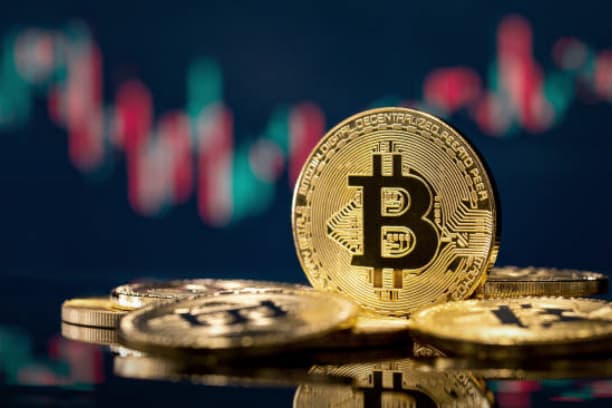Is it legal to earn hundreds of thousands of dollars by playing with virtual money|Article 1 explains
The virtual currency market is currently very popular, and many people are earning substantial profits from trading, some even earning hundreds of thousands of dollars from successful investments. Is this kind of income even legal? If you're wondering, this article will provide you with a detailed analysis of the legality of earning virtual money, as well as a comprehensive discussion of the risks involved in the trading process, the legal regulations, and how to protect your own interests. Whether you're a newbie or an experienced player, understanding these legal issues will help you trade with virtual money more safely.

The Legitimacy of Virtual Money Transactions: The Basic Framework
Currently in Taiwan, the legal status of virtual money is not entirely clear, but according to the guidelines of financial regulators, virtual money is not considered legal tender. As a result, there is no total ban on virtual currency trading in Taiwan, but there are no specific laws to protect the interests of investors. In other words, earning virtual money is not illegal, provided that the activity complies with local financial laws and regulations. If it is used for illegal purposes, such as money laundering or fraud, then it is a violation of the law and the penalties will be very severe.
Legal Definition and Financial Regulation
Taiwan's financial regulators have not completely ignored the virtual currency market. According to the FSC's guidelines, virtual currency trading platforms are required to conduct KYC (Know Your Customer) and AML (Anti-Money Laundering) measures, which are designed to prevent the illegal use of capital flows. Therefore, as long as the trading platform complies with the corresponding regulatory requirements and conducts legitimate operations, the virtual currency profits you earn are legitimate.
How to protect the legality of virtual currency trading?
To ensure the legitimacy of virtual currency trading, you must first choose a regulated trading platform. Legitimate exchanges will require users to undergo identity verification and comply with anti-money laundering regulations. There are currently exchanges in Taiwan, such as Binance and OKX, that provide a trading environment that complies with local regulations. In addition to this, investors should be aware of the tax implications of virtual currency transactions and report virtual currency proceeds in accordance with legal requirements in order to avoid unnecessary legal risks.
Choose a compliant exchange to trade on
Choosing a compliant virtual currency trading platform is crucial. Most of the major exchanges in Taiwan are already compliant with local regulations and provide transparent trading information and risk warnings. Trading activities on these platforms are usually supervised by regulatory authorities and can effectively protect investors' interests. If you choose a non-compliant trading platform, you may face the risk of having your account blocked, your funds frozen or being subjected to fraud.
How to Report Virtual Currency Income Correctly for Tax Purposes?
Many people who earn virtual money ignore the tax implications, which is an easy place to step into. According to the current tax law in Taiwan, profits from virtual currency trading need to be taxed under the "Property Transaction Income Tax". If your virtual currency investment income exceeds the tax exemption limit, you should file a tax return with the IRS and pay the corresponding tax. For large transactions, it is advisable to seek the assistance of a professional tax advisor to ensure compliance with local tax laws.

Avoid legal risks by filing correct tax returns
There are two main types of taxes that may be involved in virtual currency transactions: income tax and business tax. In the case of an individual investor, the proceeds of a virtual currency transaction will mostly be treated as property and subject to "property transaction income tax", whereas in the case of a corporate transaction, there will be a need to pay attention to business tax. In either case, investors are advised to check the latest IRS policy on a regular basis and take the initiative to seek professional advice to avoid omission or under-reporting.
Can the legal profits from virtual money be sustained in the long term?
Although earning income from virtual currency appears to be legal now, the volatility of the market, adjustments in regulatory policy and future legal developments may affect investors' earnings prospects. Investors should be aware that the virtual currency market is highly volatile and any changes in domestic or foreign policy could have a significant impact on the market and even lead to compliance issues for trading platforms. Therefore, a long-term profit model requires constant attention to market trends and legal developments.
Market Changes and Policy Risks
The virtual currency market is not a stable market and the legal regulation of virtual currencies in many countries is still evolving. For example, if more stringent regulatory policies are introduced in the future, this may have an impact on the liquidity of the market or trading conditions, and may even result in certain virtual currencies being deemed illegal under the law. Investors are advised to exercise caution, good risk management and capital planning.
Frequently Asked Questions Q&A
Q1: Is it legal to earn virtual money in Taiwan?
A1: In Taiwan, earning virtual money is not illegal per se. As long as you are conducting legitimate trading activities and following the relevant financial regulations (e.g. KYC, AML requirements), your virtual money earnings are legal.
Q2: Do I need to pay tax?
A2: Yes, according to the current tax law in Taiwan, virtual currency transactions need to be reported according to the "Property Transaction Income Tax". If your trading profit reaches a certain amount, you need to file a tax return and pay tax to the IRS.
Q3: How to avoid the risk of fraud in virtual currency trading?
A3: It is important to choose a reputable and regulated trading platform. Avoid using exchanges from unknown sources and remain vigilant at all times, especially when large sums of money are involved.














